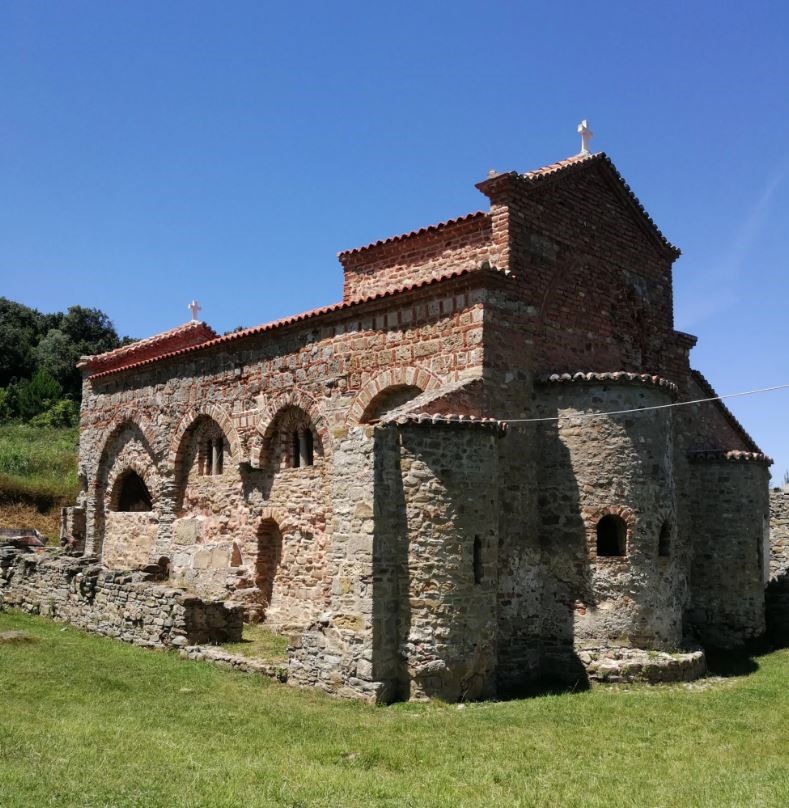Albania is one of the most vulnerable in the region to changing climate trends. Changing weather patterns have already been observed over the last 15 years with increasing temperatures, decreasing precipitation, and more frequent extreme events like floods and droughts. The vulnerability is driven in part by recent extremes in climate variability but also county’ sensitivity to events exacerbated by past practices, socioeconomic conditions, or legacy issues. The degree to which vulnerability to weather affects the economy is driven by their coping or adaptive capacities. Projections indicate a decline in summer rainfalls of about 10 percent by 2020 and 20 percent by 2050. Two sectors that are acutely impacted by these shifts in climate are energy and agriculture.
Overview on climate risk profile
“Albania is a small country with a fragile economy reliant on the services, industrial and agriculture sectors that faces a range of challenges in addressing climate change risks”, says Mihallaq Qirjo, the Director of the Resource Environmental Center Albania (REC Albania). Economic growth has been uneven. Albania’s mostly mountainous landscape is endowed with abundant water resources, a diverse flora and fauna and an extensive coastline on the Adriatic and Ionian Seas. Its terrain is conducive to seasonal flooding. Other challenges include both man-made and natural soil erosion, underregulated coastal development, tenure insecurity and contamination of the water supply, compounded by low public awareness of climate change. The vulnerability of Albania’s energy supply and agriculture sector to climatic changes, combined with a series of recent heavy floods and landslides, are elevating climate change preparedness as a priority within Albania’s development planning.
Progress on Climate Change
Over the years, the European Commission Reports have marked Albania with unsatisfactory progress related to Climate Change, which stands as specific sub chapter within the Chapter 27. Nevertheless, there is a progressive shift in the EC Report 2020, which states that “Albania has achieved some level of preparation for tackling climate change, but alignment with the acquis is still limited. It made progress by ratifying the Kigali Amendment to the Montreal Protocol”.
In July 2019, Albania approved The National Strategy for Climate Change and Plans (NS CC), 2020-2030 to support the implementation of EU legislation for environment and climate, aimed at strengthening coordination across sectors to climate adaptation measures, environmental protection, and sustainable development. The NS CC focus is put on mitigation and adaptation of climate change in Albania.
Monitoring of Strategy for Climate Change and Action Plan, 2020 – 2030
Recently, REC Albania with the support of Westminster Foundation for Democracy was involved in a monitoring initiative on the implementation of NSCC over the period including 2019-2021. A first monitoring report was focused in monitoring the inputs for the implementation of the strategy. The main findings were presented in a workshop organized on the 29th of September 2021 with participation of CSOs, national institutions and environmentalists.
Some of the key findings
Financial Pillar: No mechanism could be found to trace back the way how committed funds in the strategy is allocated through sectors, or how the spending on these funds has been filed.
MTBP expenditure is far less than the forecast budget in the Strategy. Financial GAP is around 49.7 billion ALL (7x less), however the fact that budgets are not linked to each other makes it impossible to assess the real, financial climate GAP.
Climate strategies attempts to cover both categories of action: decarbonization (referred to as “mitigation”) and adaptation. From the screening of MTBPs the resources seem to be asymmetrically allocated to energy efficiency projects (otherwise ‘mitigation’), whereas ‘adaption’ is part of the plan only.
Legislation and Policy: Albania has ratified the most recent amendment to the Montreal Protocol known as Kigali Amendment, the Kyoto protocol and is a state party to the Rio Convention on climate change.
Recent approval of Law on Climate Change is of particular importance as it has partly transposed the Directive 2003/87/EC Emission Trading System (EU ETS) as amended as well as aligned the Regulation (EU) No 525/2013 on Monitoring mechanism. However, the subsidiary acts due to be adopted are still lacking and the implementation of legislation lags behind. Sometimes the legislation is too advanced vis-à-vis the administrative, institutional, and financial capacities in place.
Institutional Capacity Development: Almost all the activities (at the MoTE) substantially connected to climate change are introduced as a partnership with UN’s (national and regional) Development Programs, which role (UN’s) seems to be essential in the institutional building within the ministry. The capacities in the ministries continue to suffer from a lack of maturity in delivering technical workflow settings on climate change.
Relying in a friable economy, and lack of capacities Albania will have to face up the defeat of devastating shock to the economy, health, and nature of the climate disaster wave. Preventing the damage effects is neither an easy nor a fast response process. In contrary, the preparatory process to adapt to climate change requires enormous financial sources and investment, knowledge building and empowerment of climate experts, as well as public awareness in making pro-climate life choices.





